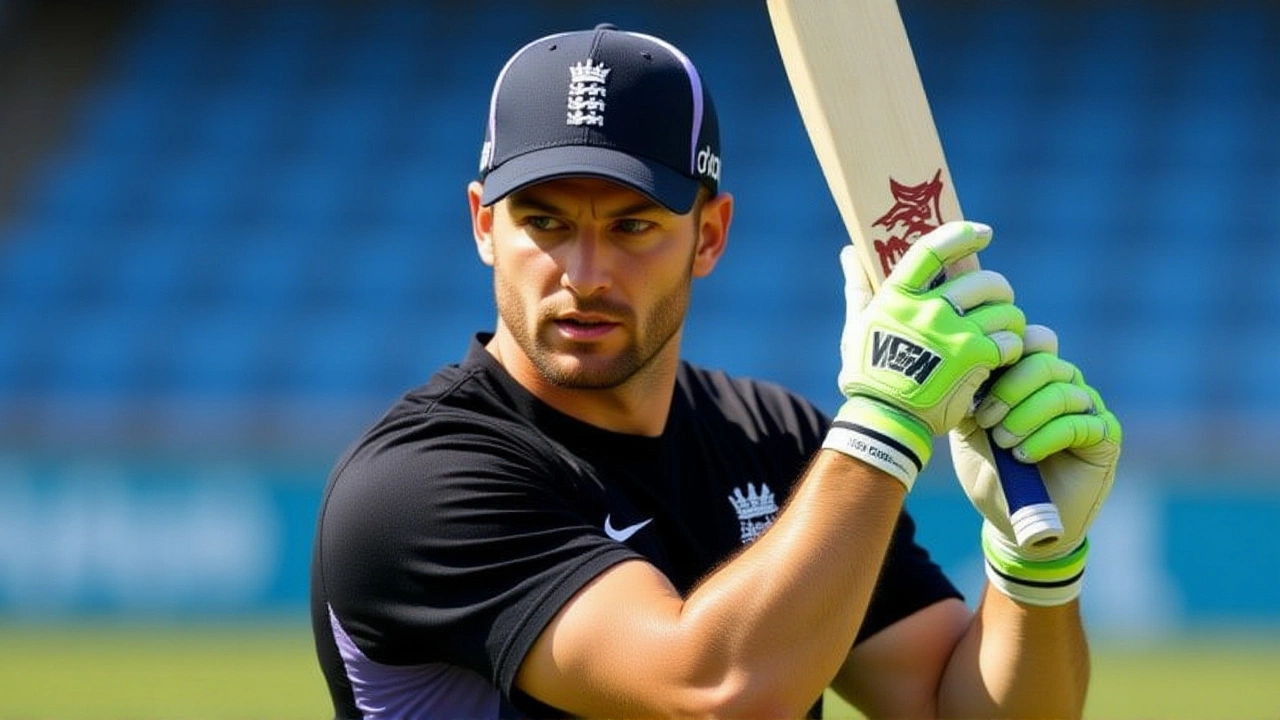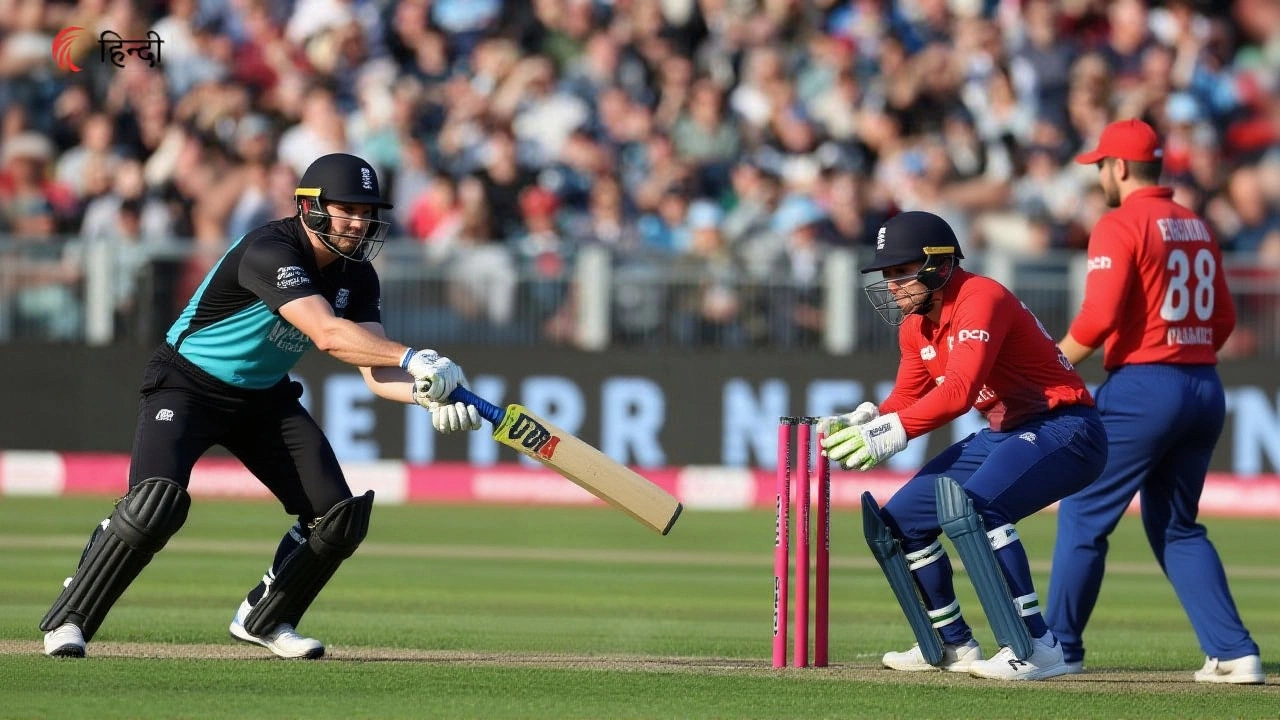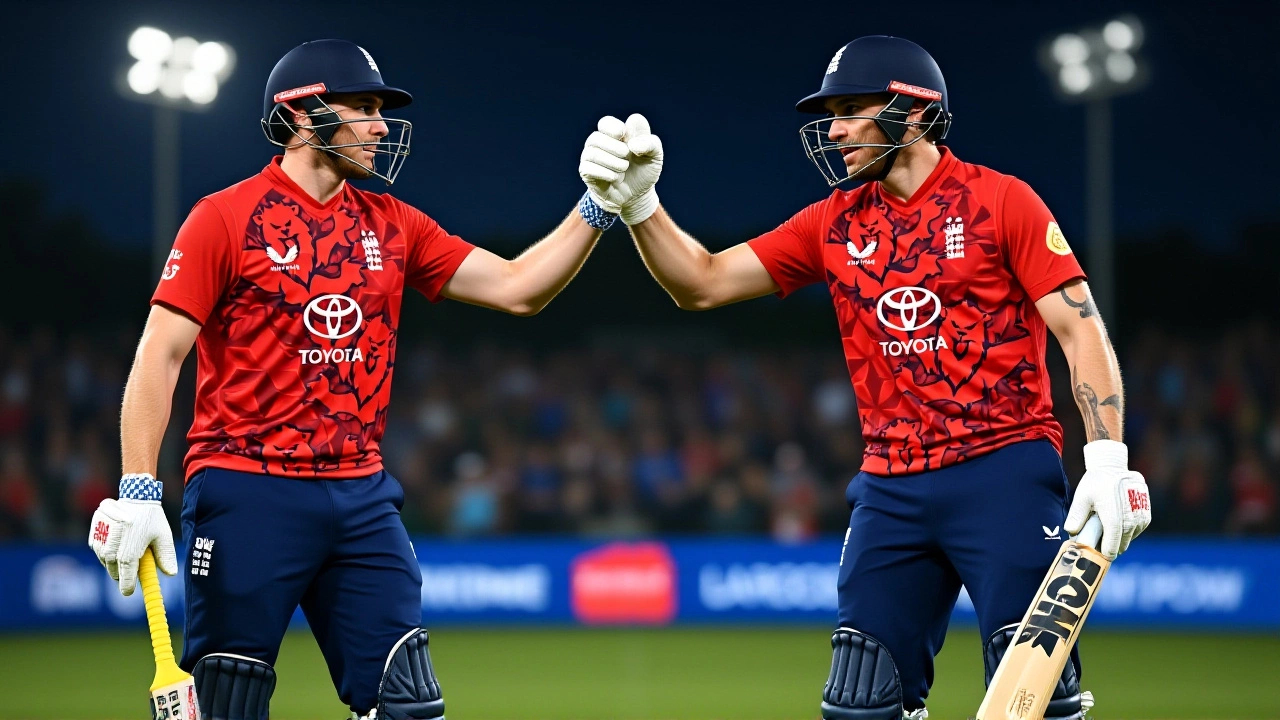
When Jos Buttler, England’s wicket‑keeper‑batsman matched Ian Bell's tally of 39 fifty‑plus scores in ODIs during the second match against South Africa on 3 September 2025, the cricket world took notice. The game unfolded at an English venue (official records list the match as part of the England‑South Africa series, September 2025) and ended in a heartbreaking five‑run defeat for England after they fell short of the target of 331. Buttler’s 61‑run knock kept the hosts alive, but a late‑innings collapse handed the Proteas a historic series win – their first over England in an ODI series since the early‑1990s.
Why Buttler’s Milestone Matters
The significance goes beyond a number tucked into a stats sheet. Reaching 39 fifty‑plus scores places Buttler level with Bell, who retired in 2019 after a distinguished career. Only two names sit above them on England’s all‑time list: Joe Root with 61 and Eoin Morgan with 55. At 34, Buttler is still a mainstay of England’s limited‑overs set‑up, meaning he could well surge past Bell and perhaps even close the gap to Morgan before the next World Cup.
Analysts from Cricket Country point out that Buttler’s consistency – 39 scores in 135 ODIs – translates to a fifty‑plus conversion rate of nearly 29 %, a figure that rivals the best modern white‑ball batters. "If he stays injury‑free, one more half‑century is all that stands between him and a solo spot in the top three," one senior editor noted.
Match Summary: England vs South Africa
South Africa won the toss and elected to bat. An opening partnership of 73 runs between Aiden Markram (born 4 Oct 1994) and Ryan Rickelton set a solid platform. After the openers fell, Matthew Breetzke and Tristan Stubbs took charge, scoring 85 and 68 respectively. Breetzke’s 85 was historic – he became the first player to notch five consecutive fifty‑plus scores since his ODI debut.
The Proteas finished on 330/9, thanks also to a quick cameo from Dewald Brevis (42) and a steady 32 not out by Corbin Bosch. England’s reply began poorly; both openers were dismissed cheaply. Joe Root contributed a half‑century alongside debutant Jacob Bethell, who also reached 50. Buttler’s 61 brought the score to 325/9, but the lower order could not muster the final five runs. All‑rounder Jofra Archer added an unbeaten 27, yet England fell five runs short.

Record Holders and the Road Ahead
Root’s 61 fifty‑plus scores remain the benchmark, while Morgan’s 55 sit comfortably in second place. For Buttler, the path is clear: one more fifty‑plus effort and he will sit alone in third spot. The next chance arrives in England’s upcoming ODI series against New Zealand, slated for early 2026. Scheduling details are still being finalised, but the ECB has hinted that the first encounter will be at a neutral venue, offering Buttler a fresh canvas.
Beyond personal milestones, the record underscores a broader trend – England’s white‑ball core is ageing, and the team is actively grooming younger talent like Bethell and Archer to take over. Should Buttler maintain his form, his experience could provide the mentorship required to bridge the generational gap.
Reactions from the ECB and Cricket South Africa
Speaking after the match, England and Wales Cricket Board (ECB) chief executive Richard Gould praised Buttler’s resilience: "Jos has shown why he remains a lynchpin for England in ODIs. A fifty‑plus score in a pressure chase is no small feat, even if the result didn’t go our way. We’ll learn from this loss and come back stronger."
On the South African side, Cricket South Africa director of cricket Maharaj Kruger hailed the series win as "a watershed moment for the Proteas, ending a 27‑year unbeaten streak in ODI series against England. It proves our depth and the impact of the new talent pipeline."

What This Means for Future ODIs
The narrow margin of defeat – five runs – highlights the fine line between victory and loss in modern one‑day cricket. Teams are increasingly looking at data‑driven approaches to finish games, and England’s premature wicket loss of both openers proved costly. For the Proteas, the series win adds confidence heading into the ICC World Cup qualifiers, while England will need to re‑evaluate its middle‑order strategy.
From a commercial angle, the series generated strong viewership in the UK and South Africa, confirming that the England‑South Africa rivalry still commands global interest. Broadcasters are expected to negotiate higher rights fees for future bilateral series, especially now that the competitive balance has shifted.
- Jos Buttler and Ian Bell now share 39 ODI fifty‑plus scores for England.
- Joe Root leads with 61, Eoin Morgan follows with 55.
- South Africa posted 330/9; England fell short at 325 all out.
- The series marks England’s first ODI series loss to South Africa since the early 1990s.
- Buttler needs one more fifty to claim solo third place on the all‑time list.
Frequently Asked Questions
How does Buttler’s record affect England’s ODI batting order?
Buttler’s consistency reinforces his role as the senior batsman who can anchor chases. His ability to reach fifty-plus scores under pressure means England can continue to rely on him while grooming younger players like Jacob Bethell for the middle‑order. The ECB is likely to keep Buttler at number four, providing stability for the top three.
What led to England’s five‑run loss?
A combination of early wickets, a sluggish middle‑order partnership and a failure to accelerate in the final overs cost England. The top order contributed only 44 runs, and despite a late surge from Buttler and Archer, the required run‑rate slipped beyond reach.
Who holds the record for most ODI fifty‑plus scores for England?
Joe Root is the record holder with 61 fifty‑plus scores, followed by Eoin Morgan with 55. Buttler and Ian Bell are now joint third with 39 each.
When will Buttler have his next chance to break the record?
England’s next ODI series against New Zealand, planned for early 2026, will give Buttler the platform to notch another fifty‑plus score. The exact fixtures are still being finalised by the ECB.
What does the series win mean for South Africa’s future fixtures?
The victory ends a 27‑year unbeaten streak and boosts South Africa’s bargaining power for upcoming bilateral series and ICC tournaments. It also highlights the impact of newer talents like Breetzke, who are now seen as core pieces for the Proteas.